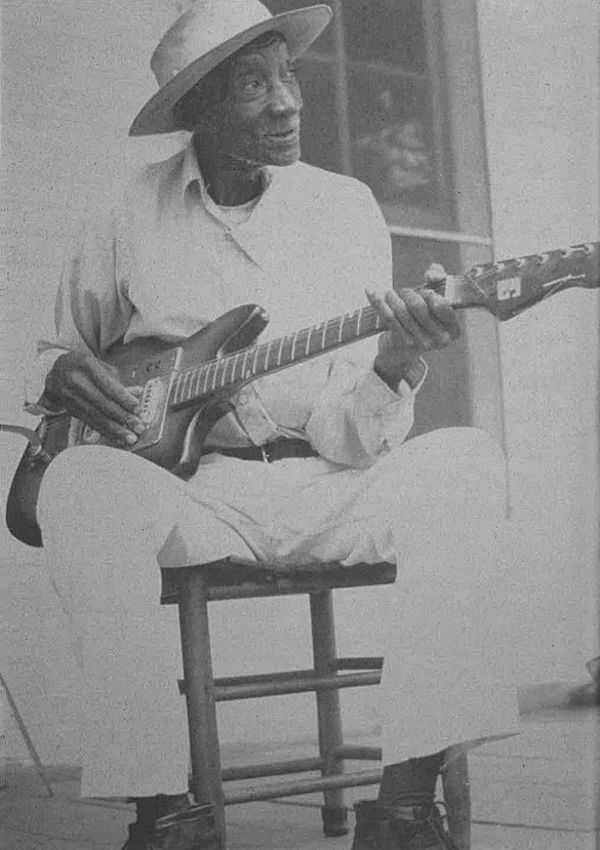SCOTT DUNBAR
Scott Dunbar fué descubierto por Fredereic Ramsey Jr. en uno de sus viajes de campo , Dunbar que vivía en Old River Lake en el suroeste de Mississippi , casi enfrente de la penitenciaria del estado de Louisiana, Angola , en la otra orilla del río Mississippi. Su guitarra percusiva y exuberante,proporcionaba el acompañamiento adecuado a las buck dances y a otros stomps , como el instrumental " Memphis Mail " o " Easy Rider " ( en la que comparte la parte vocal son su mujer Rose) .Sus " Forty Four Blues " y " Going Back to Vicksburg " ( en el que también canta Rose ) siguen diferentes tempos .Tienen sin embargo afinidades en las letras con las canciones tradicionales del mismo título y van enlazadas normalmente , por los mismos acompañamientos pianísticos , conocidos generalmente como " 44s " .
In the notes to his sole album, From Lake Mary issued on the Ahura Mazda label in 1970, Karl Micheal Wolfe wrote that "Today Scott Dunbar is a fisherman and guide on Lake Mary, father of six, and resident blues singer of Woodville and rural Wilkinson County, Mississippi. There everyone knows old Scott. We hope this record will make him known to a wider audience.
"Scott Dunbar is not an unknown artist struggling for recognition; being one of the most well-known men around Lake Mary has been enough for him. When you listen to this album you will hear a man who has lived a good life and is satisfied with it; his songs are neither a bid for money or fame, nor mournful cries from a suffering heart. I asked Scott once what his music meant to him, and he said: Well I'll tell you...if it feels good to the people it feels twice as good to me."
Blues guitarist, Scott Dunbar was born in 1905 on Deer Park Plantation between the Mississippi River and Lake Mary. After his father died, Scott moved to Natchez, where he was raised by his mother. That may be as far as he ever traveled from Wilkinson County, Mississippi where he became a local legend.
Dunbar is said to have made his first guitar out of a cigar box and a broom stick when he was 10. He learned to play by listening to recordings in the 1920's, 30's and 40's and by working on the steamboats that ran up and down the river around Natchez. There were always traveling musicians going from St. Louis to New Orleans which afforded him the opportunity to listen to and learn many styles of playing, everything from ragtime, blues to jazz.
Eventually Dunbar wrote his own songs. But it wasn't until he was close to 70 years old that he made his first and only recording, "Live From Lake Mary." A reviewer of the reissue on CD described Dunbar's music as "ragged and downhome...the Natchez blues in all their unvarnished, unsophisticated beauty." He was asked once what his music meant to him, Dunbar replied, "Well, I'll tell you, if it feels good to the people, it feels twice as good to me."
He was the father of 6 children, supporting them by making his living as a fisherman and guide around Lake Mary. But his reputation as a musician expanded with the many local parties he played. Unlike most blues singers of his time, Dunbar didn't generally play the standard juke joints, fish fries, picnic dances like most bluesmen. Instead he played private parties primarily for white audiences around Lake Mary and even around St. Francisville, Louisiana. Rest in Peace Mr. Dunbar.



Comments